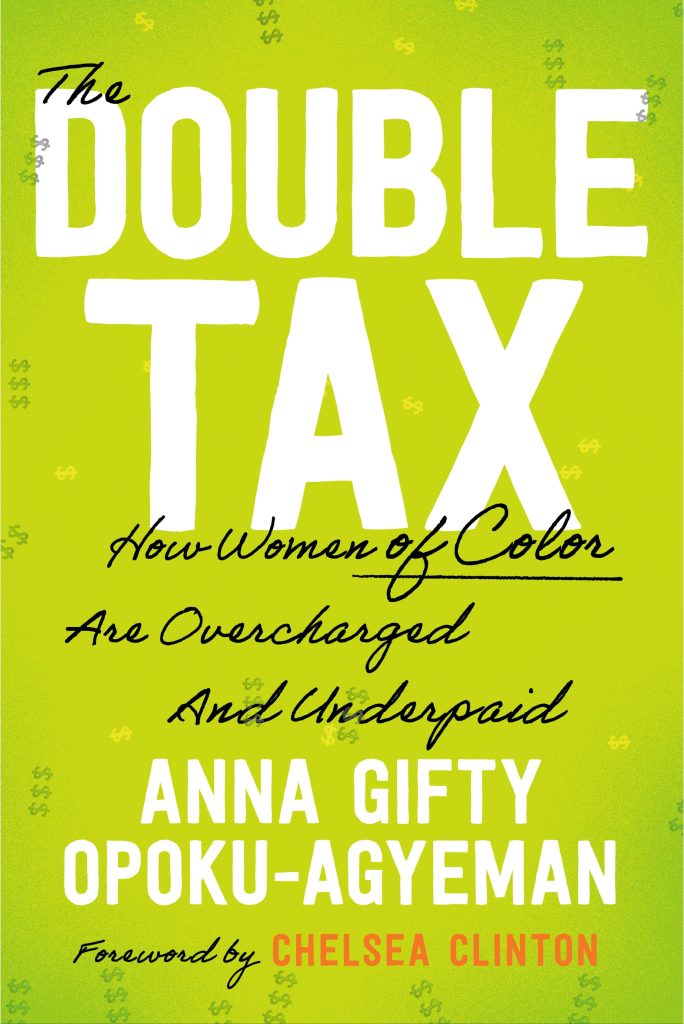
Your favorite Uncle will want to hear from you in about six months, maybe sooner.
He’ll want to talk about your wallet, first and foremost. He’ll be interested in your home and your workplace and he’ll check your memory and your math skills. Nice guy, he’ll probably ask after your family, too. You can’t avoid Uncle Sam’s inquisitiveness but with “The Double Tax” by Anna Gifty Opoku-Agyeman, you’ll see how to stop the “pink tax” from being worse if you’re black.
When she was a young child, Anna Gifty Opoku-Ageyman noticed that when it was time to leave for church, the women in her family struggled to get ready on time. Hair, make-up, dressing, it all took more effort for her mother and sisters than it did for the menfolk.
Generally speaking, women have social requirements they must follow that manufacturers have seized upon, leading to “pink taxes,” or extra costs placed on things for women that are identical to products made for men. Unfair, yes, and in the case of Black women and life, she says, there’s often a double-tax.
Take, for instance, hair.
Studies show that a woman’s looks are linked to her checkbook, and hair and beauty products matter. Products marketed to women cost more than that which is marketed to men, and the cost is even higher for Black women’s products. That’s if they can find them nearby.
Women go up against gender stereotypes when applying for jobs; Black women go up against stereotypes of gender and race – which can also lead to “tokenism” and wage gaps. Women get stuck in lower-paying jobs and are often discouraged from reaching for STEM-related careers, but studies show that Black women suffer higher rates of this discrimination.
So what can be done?
Fund minority businesses, Opoku-Ageyman says. Change how your business uses resumes. Support better access to education for Black women. Be transparent in your organization’s pay scale. Revisit your company’s policy on motherhood.
Finally, identify gaps in the system and close them. Doing so will help now, and later.
Sometimes, it seems like life is all uphill. And that may be twice as apt for women of color, as you’ll see in “The Double Tax.”
But is this a book you need?
Read a little, think about its first few pages, and you may decide that author Anna Gifty Opoku-Agyeman isn’t talking to you. If you’re a woman of color, what’s here is old news; instead, she seems to be talking more to male supervisors, bosses, and CEOs of all races with personal stories that underscore her points. That doesn’t mean white woman won’t learn a few things – raising another woman up is always a good action – but men who don’t pay the pink tax will surely get more from it.
Although what you’ll find here is a bit broad, this book will open eyes to what’s hidden in plain sight and you’ll find ideas for change that can affect the status quo. For that, “The Double Tax” is a singularly helpful book.


